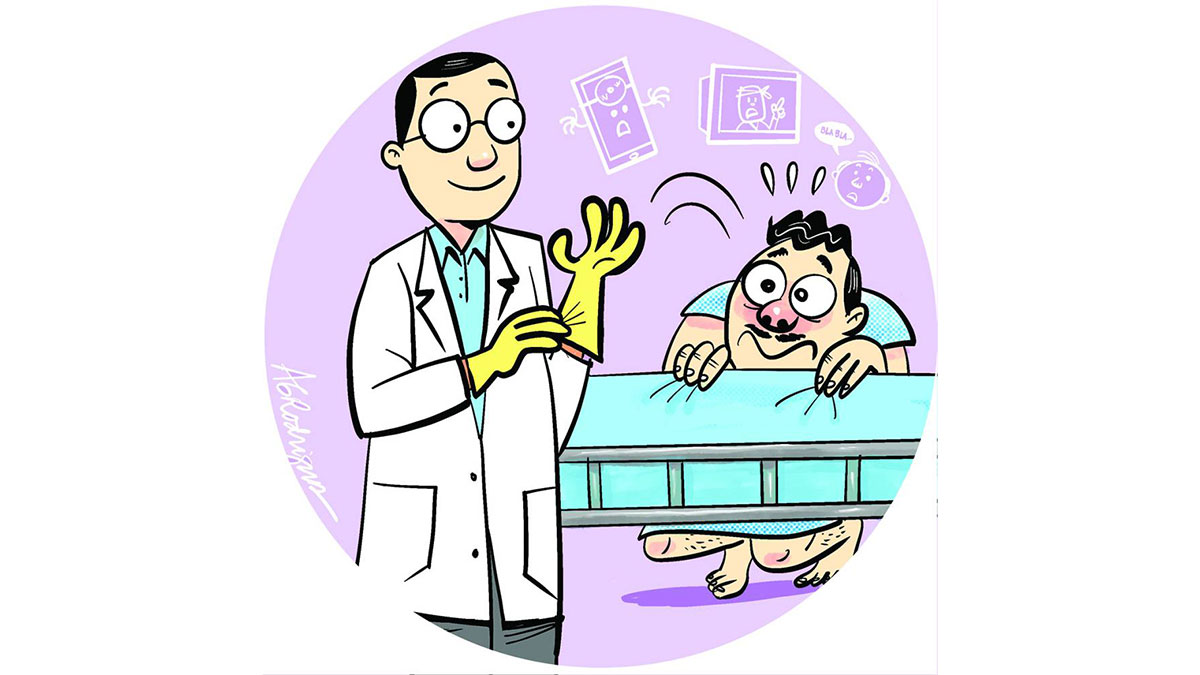SINGAPORE — Concerns over the coronavirus pandemic have found their way into people’s dreams, a development that psychologists say is common around traumatic events.
For Ms Gunriddh Sial, it has turned into nightmares. She suffers from trypophobia, a fear of small clustered holes which can induce panic, disgust and anxiety.
One night, she woke up abruptly when she dreamt of “a green virus in the form of a human” serving her a slice of pizza.
“The virus had small, round holes all over it. I felt very anxious. It was both weird and eerie because I had just discussed eating pizza in a restaurant with my husband that evening,” said Ms Sial, 25, who is doing a master’s degree in supply chain and logistics management.
She said it happened two weeks ago after she told her husband, a 32-year-old physicist, she wanted to have pizza in a restaurant.
Ms Sial had been looking forward to it after food and beverage businesses were allowed to offer dine-in services from June 19 with safe distancing measures, as Singapore entered phase two of its gradual reopening.
Her husband dissuaded her from doing it, saying they should avoid dining out until the Covid-19 situation improved further.
That night, she had her strange dream, which she said was all the more scary because the virus was made up of such small holes – “exactly the kind I fear”.
Dr Lim Li Ling, a neurologist at the Singapore Neurology and Sleep Centre in Gleneagles Medical Centre, said dreams may reflect the conscious or subconscious stressors, and fears and issues people experience in their waking hours.
“These underlying fears may surface during sleep as part of their dreams or nightmares. People who experience traumatic or catastrophic events such as Covid-19 may develop psychological symptoms such as fear, anxiety and depression.
“As a result, distressing or vivid dreams may be a manifestation of these psychological disturbances,” said Dr Lim, adding that she has seen older patients who have generalized anxiety and poor sleep due to fears of the pandemic and the frustration of having to stay at home.
This translation of a traumatic experience into dreams was noted in May by Dr Deirdre Barrett, assistant professor of psychology at Harvard Medical School’s department of psychiatry.
Studying the dreams of survivors of the Sept 11, 2011 terror attacks in the United States, she found that bizarre, emotional and vivid dreams tend to increase after a crisis.
Ms Sial said she has been waking up intermittently because of stress over the pandemic.
“Since the Covid-19 outbreak started here, I’ve had dreams where green objects and creepy-looking bugs were flying around. I don’t know what these dreams mean, but they are disturbing,” she said.
While the content and meaning of dreams are not well understood, Dr Lim said during periods of stress, there may be symptoms such as fear, anxiety, depression or exhaustion which lead to a hyper-arousal state mentally. This, in turn, prevents deep and restful sleep, causing one to wake up feeling exhausted.
Ms Sial feels her heightened interest in news related to the pandemic around the world has caused her to feel more stressed.
“At one point, I deactivated my social media accounts and did not watch the news for a week. It was too overwhelming as everyone was talking about the virus and I needed a breather.”
Dr Kenny Pang, an ear, nose and throat specialist at Asia Sleep Centre, said it is believed that during a stressful period in a person’s life, the emotional centre of the brain, called the limbic system, is stimulated and very active.
“The limbic system retains some memory of the event. This same area of the brain is also very much involved in the dreaming processes at night. Hence, some scientists believe that after a very stressful period of one’s life, one might have dreams of the events that had occurred previously,” said Dr Pang, who is the founding member of the International Sleep Surgical Society, as well as a member of the World Sleep Society and the Singapore Sleep Society.
The myth of “the more I dream, the more tired I am” is not true, he added.
“In general, dream sleep is good for the brain. It is a period of rejuvenation and memory rebuilding. The more we dream, the more refreshed we are in the morning.”
However, disturbing dreams can cause sleep fragmentation, which may lead to poor sleep quality, said Dr Pang.
In March, human resource executive Samantha Ng recalled that she dreamt of hand sanitizers, toilet paper and anti-bacterial soap falling from the sky.
“I was standing on a vast plot of land and these items were falling from the sky, so I ran to grab them. I remember feeling happy that nobody was jostling for them with me,” said the 29-year-old with a laugh.
Dr Mark Toh, consultant clinical psychologist at Promises Healthcare, said people dream about such items because they represent “perceived solutions to address the threat of being harmed by Covid-19”.
He added: “Our psyche is highly concerned about safety and security and, therefore, when a threat is perceived, we consciously and unconsciously move in search of items or avenues that promote and restore our sense of safety.”
Undergraduate Sng Ler Jun had a “funny” dream before the circuit breaker was announced in April.
The 24-year-old dreamt that he was late for an examination in school and was denied entry because he had forgotten to wear a face mask.
“Apparently, the mask was a requirement to take the exam. It was not compulsory to wear masks at that time, so I found it funny that in my dream, it was so important to wear a mask,” he said.
He laughed it off, he added. “I didn’t wake up in shock or perspiration. I found it amusing and just brushed it off.”
However, there are nights where he stays up worrying about his job prospects. He graduates in December. “I want to be a journalist, but I am worried about getting a job in the post-Covid-19 era. The mild anxiety from this has somewhat affected how early I sleep.”
He is taking melatonin gummies to help calm his mind on some nights and promote a healthy sleep cycle.
Dr Toh says insomnia is a common occurrence for those who have difficulty sleeping because of worries about employment or their future.
To cope with this, he advises people to practice good sleep hygiene such as limiting daytime naps to 30 minutes, avoiding stimulants such as caffeine and nicotine before bedtime, and doing regular exercises to promote good-quality sleep.
“It is important at this time of disruption and uncertainty during a pandemic that we establish goals to maintain good physical and mental health, consistent with building our resilience to cope with the unrelenting demands of living effectively in the present and in the future,” said Dr Toh.
Sleep hygiene is the practice of following simple guidelines to ensure more restful and effective sleep which can promote daytime alertness and help treat or avoid certain kinds of sleep disorders.
Trouble sleeping and daytime sleepiness can be indications of poor sleep hygiene. Dr Kenny Pang, a ear, nose and throat specialist at Asia Sleep Center, shares tips on having a good night’s sleep.
1. Go to bed at the same time each day.
This will allow your mind and body a chance to rest regularly and at a fixed scheduled time. Avoid tricking your body as it is sensitive to light exposure and changes in times.
2. Get regular exercise each day, preferably in the morning.
There is good evidence regular exercise improves restful sleep. This includes stretching, aerobic exercise, meditation and yoga.
3. Get regular exposure to outdoor or bright lights in the day.
This allows the mind and body to be aware of day and night, as melatonin is produced during the night.
4. Keep the temperature in the bedroom cool and comfortable.
You will not be able to sleep well if you are perspiring . It should not be too cold as well.
5. Keep the bedroom quiet when asleep, as a noisy environment might keep you awake.
Your bed partner should preferably not be a snorer. The spouse of a snorer has been shown to sleep an average of two hours less in terms of quantity when compared with one whose bed partner does not snore.
6. Keep the bedroom dark enough to facilitate sleep.
Melatonin levels in the blood start to rise by about 9 to 10pm and peaks by 1 to 2am. It helps to have a dark environment for sleeping.
7. Keep your feet and hands warm.
Wear warm socks, mittens or gloves to bed.
DON’T
1. Exercise three to four hours before going to bed.
The heart rate and adrenaline levels in the blood needs some time to slow down.
2. Engage in stimulating activity just before bed.
This includes playing a competitive game, watching an exciting show or movie, or having an important or heated discussion with a loved one.
You should also avoid surfing the Internet just before sleeping.
3. Have caffeine such as coffee, tea, soda and chocolate in the evening.
They contain stimulants that might keep you awake at night.
4. Read or watch television in bed.
The bed is meant only for sleep and sex.
5. Go to bed too hungry or too full.
You will not be able to sleep when you are hungry, as gastric pain might keep you awake. On the other hand, a full stomach will promote reflux disease and cause chest discomfort.
6. Take daytime naps if you have any form of insomnia or sleeplessness.
The guilt of sleeping in the afternoon may keep you up at night.
7. Command yourself to go to sleep.
This only makes your mind and body more alert.











































